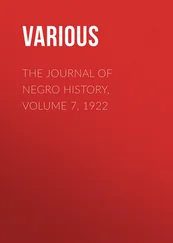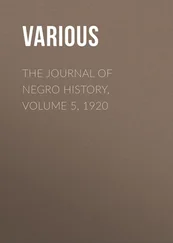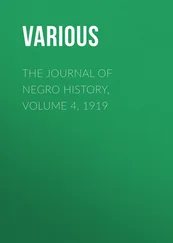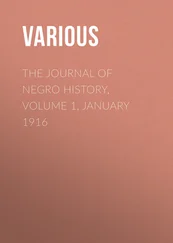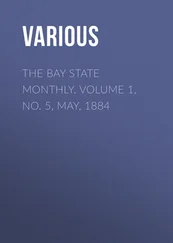Various - The Bay State Monthly, Volume 3, No. 2
Здесь есть возможность читать онлайн «Various - The Bay State Monthly, Volume 3, No. 2» — ознакомительный отрывок электронной книги совершенно бесплатно, а после прочтения отрывка купить полную версию. В некоторых случаях можно слушать аудио, скачать через торрент в формате fb2 и присутствует краткое содержание. Жанр: foreign_antique, periodic, foreign_edu, на английском языке. Описание произведения, (предисловие) а так же отзывы посетителей доступны на портале библиотеки ЛибКат.
- Название:The Bay State Monthly, Volume 3, No. 2
- Автор:
- Жанр:
- Год:неизвестен
- ISBN:нет данных
- Рейтинг книги:3 / 5. Голосов: 1
-
Избранное:Добавить в избранное
- Отзывы:
-
Ваша оценка:
- 60
- 1
- 2
- 3
- 4
- 5
The Bay State Monthly, Volume 3, No. 2: краткое содержание, описание и аннотация
Предлагаем к чтению аннотацию, описание, краткое содержание или предисловие (зависит от того, что написал сам автор книги «The Bay State Monthly, Volume 3, No. 2»). Если вы не нашли необходимую информацию о книге — напишите в комментариях, мы постараемся отыскать её.
The Bay State Monthly, Volume 3, No. 2 — читать онлайн ознакомительный отрывок
Ниже представлен текст книги, разбитый по страницам. Система сохранения места последней прочитанной страницы, позволяет с удобством читать онлайн бесплатно книгу «The Bay State Monthly, Volume 3, No. 2», без необходимости каждый раз заново искать на чём Вы остановились. Поставьте закладку, и сможете в любой момент перейти на страницу, на которой закончили чтение.
Интервал:
Закладка:
Deacon David was averse to strife and controversy; the convictions which he cherished had been matured by careful study, and he was ready to give them expression on all suitable occasions; but he avoided personal disputes, and the imputations that accompany heated discussion. He knew that these controversies were unprofitable, and he consequently sought "the things that make for peace." When differences arose and bad feelings were likely to be stirred, he was happy if he could remove or allay the cause of alienation.
As a citizen, Deacon David exhibited a hearty interest in the prosperity of the town, and he did not shrink from the duties by which the community is served. He wished to have good schools, well made roads, and all public buildings convenient and in good repair. A modest man, not seeking office for himself, and always ready to commend good service when rendered by others, he did not decline when called to take office. He accordingly acted as a select-man, representative to the Legislature, member of the School Committee, in addition to special services when some interest or enterprise affecting the community was given in charge to a committee to act in behalf of the town.
Socially, his influence was constantly exerted in the promotion of whatever would elevate and improve the aims and habits of his townsmen. He was active in the movement for the establishment of a Library which should be open to all; in the absence of an Academy, he favored the introduction of a High School.
He constructed sidewalks, and along the streets, so far as he had control, shade trees were planted by his direction. He was also careful to maintain the amenities of life, prompt in meeting and reciprocating all social obligations. Somewhat above the medium height, erect but spare in figure, there was a mingling of dignity and sweetness in his expression which won your confidence. The promptness and despatch, which distinguished his methods of business, were manifest in the general ordering of his affairs. The practical forecast, which, anticipates the crowding of engagements, and maps out the work, was seen in the distribution of his occupations. The materials were in readiness for every workman's alloted task. Without formal designation, there was time for study, or the performance of civil or social duty, in the busiest season. It entered into his plans to maintain an order in his reading and recreations. His farm, his buildings, tools, equipage, and the whole estate, were kept in excellent condition. Without lavish expenditure, his premises wore an air of neatness and thrift. He was uneasy if his animals were exposed to ill treatment, and he tolerated no waste. With such habits, it was pleasant to be associated with him in any service. You had not to wait for him. He remembered his appointments. He was in his seat in the sanctuary before the opening of the service. No special message was required to secure his attendance at town meeting. The power of his example was elevating and wholesome, and as we review his life and deplore the loss of his presence and cooperation, it is interesting to hear the frequent and hearty testimonials to his kindness, and fairmindedness coming from men who were long in his employment; while others gratefully acknowledge his friendly counsel and assistance in their youthful days.
In politics, Deacon David was Whig and Republican; he believed in the policy of protecting American manufactures, and, during the most active period of his life, his opinions were in harmony with the sentiments of Mr. Webster. With the dissolution of the Whig party, and the undeniable intention on the part of the South to extend the area of slavery, he became a staunch Republican. On the election of Lincoln he put forth his best endeavors to maintain the government, and when the call was made for troops, he was among the foremost to pledge himself and all that he had to sustain the imperilled cause of Liberty. He encouraged his sons to enlist in the army and two of them entered the military service of the country.
Deacon David had seven children, of whom five attained majority and became heads of families; three of this number are now living, two sons and a daughter; and there are fifteen grandchildren. He retired from active business in 1875, but interested himself in the affairs of the Church, and in the business of a son in Boston. But his health, never very robust, became impaired with the advance in years, and he withdrew more and more from public notice. His wife and children were constant with their grateful ministrations, and, under the oversight of attentive physicians, his life was prolonged beyond expectation. He retained his mental powers in great activity until the end, his memory of recent, as well as remote occurrences, serving him with unusual accuracy. He was seldom depressed, and had none of the "melancholy damp of cold and dry," of which Milton speaks, to weigh his spirits down. Being able to see friends, he conversed with the animation and intelligence of one in middle life.
The change came at length, and sustained by an unfaltering trust in the Lord Jesus, whom he had publicly confessed for nearly half a century, he fell asleep on the third of September, 1883. He had lived with his wife fifty-seven years, and in the same house for fifty-two years. Soon after his death, the Church adopted formal resolutions, setting forth the grounds of their gratitude to God for his valuable life and services as an officer, and expressing the sincere affection with which they cherished his memory as a citizen and friend.
THE BOSTON LATIN SCHOOL
The one educational institution in this country which has the honor of ante-dating Harvard College by a few years, and of thus being the very oldest in the land, is the Boston Latin School. For two hundred and fifty years it has been a part, and an important part, of the town and city of Boston, influencing all its other institutions, social, literary, moral, political, and religious, and largely giving to the metropolis, directly or indirectly, its wide-spread fame as the "Athens of America."
The establishment of this School has its origin in a vote of which the following is a transcript:
"… 13th of the 2d moneth 1635 … att a General meeting upon public notice … it was generally agreed upon, that our brother Philemon Pormout shall be intreated to become scholemaster for the teaching and nourtering of children with us."
At this time, Boston was a village of perhaps, fifteen hundred inhabitants, and it was a hundred years later before it had reached as many thousands.
The first school-house was on the north side of School street, close by the burying-ground which had already received the mortal dust of several of the early settlers. It was a century before King's Chapel was built, but at the foot of School street, near the site of the Old South meeting-house, was Governor Winthrop's imposing mansion; and nearly opposite this, was the Blue Lion Tavern.
The foundation of this school was soon followed by several others. Charlestown had a school in 1636, Salem and Ipswich in 1637, and the Eliot school in Roxbury was established in 1645. The Latin school was alone in Boston, however, for nearly fifty years, and it was wisely cherished and nurtured by the town. Mr. Pormout was paid a salary of sixty pounds a year, a sum considered comportable to the talent employed, and the grave responsibilities of the position.
The masters who succeeded to Mr. Pormout are, in their order: Rev. Daniel Maude, Rev. John Woodbridge, Robert Woodmansie, Benjamin Thompson, Ezekiel Cheever, Rev. Nathaniel Williams, and John Lovell, whose rule continued for forty-two years, or until the Revolutionary war. Among Lovell's pupils was Harrison Gray Otis. During the excitement of the war, the school was closed for a short time, but was again opened in June, 1776, under the rule of Mr. Samuel Hunt. He was in authority for twenty-nine years and was then succeeded by William Bigelow of Salem, who held the sceptre until 1813, when it passed to Benjamin Apthorp Gould, and in 1828 to Frederick P. Leverett. The later masters have been Charles K. Dilloway, who succeeded in 1831, Epes Sargent Dixwell in 1836, Francis Gardner in 1851, Augustine W. Gay in 1876, and in 1877 Moses Merrill, the present efficient master. Among these many school teachers, some have been famous for their marked abilities. This is especially true of Ezekiel Cheever, John Lovell, and Francis Gardner.
Читать дальшеИнтервал:
Закладка:
Похожие книги на «The Bay State Monthly, Volume 3, No. 2»
Представляем Вашему вниманию похожие книги на «The Bay State Monthly, Volume 3, No. 2» списком для выбора. Мы отобрали схожую по названию и смыслу литературу в надежде предоставить читателям больше вариантов отыскать новые, интересные, ещё непрочитанные произведения.
Обсуждение, отзывы о книге «The Bay State Monthly, Volume 3, No. 2» и просто собственные мнения читателей. Оставьте ваши комментарии, напишите, что Вы думаете о произведении, его смысле или главных героях. Укажите что конкретно понравилось, а что нет, и почему Вы так считаете.


